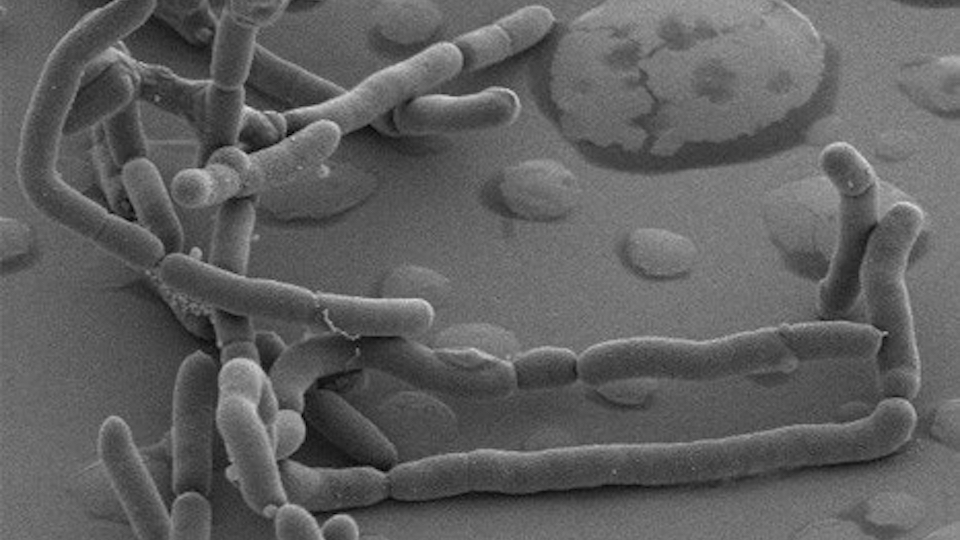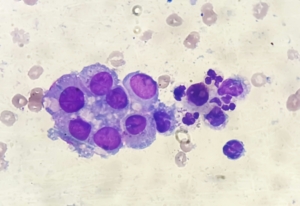
Living therapy: Microbial immunotherapy of Exeliom Biosciences gets a boost
Exeliom Biosciences, a French company focused on the microbiome-immunomodulation axis to develop next-generation immunotherapies, has announced the closing of its €24m (US$26m) Series A financing to advance the clinical development of its therapeutic pipeline, including several clinical trials of EXL01, a novel bacterial immunotherapy with applications in cancer and infectious diseases.
Exeliom Biosciences (Paris, France) is using its unique knowledge of the microbiome-immunomodulation axis to develop next-generation immunotherapies. The company announced the closing of its €24 million ($26 million) Series A financing to advance the clinical development of its therapeutic pipeline, including several clinical trials of EXL01, a novel immunotherapy with applications in cancer and infectious diseases. The funding round has been underway since 2018, starting with €7m and adding a further €3m in 2021, plus €6m of non-dilutive funding secured over the period.
New international VC investor CE-Ventures, the corporate venture capital platform of Crescent Enterprises, a leading multinational company headquartered in the United Arab Emirates, led the €8 million Series A extension, joining existing investors including VCs Auriga Partners and UI Investissement, and Biocodex, an independent multinational pharmaceutical company. The proceeds will be used primarily to advance the clinical development of Exeliom Biosciences’ lead candidate EXL01 in two new therapeutic areas: immuno-oncology and infectious diseases. EXL01 is a once-daily, potentially first-in-class, microbiome-based immunotherapy containing a well-characterised, unmodified single strain of the major dominant commensal bacterium Faecalibacterium prausnitzii.
This dominant species of the human gut microbiota has shown promising immunomodulatory properties that can enhance the activation of the immune system in the context of existing standard treatments. Through this activation, Faecalibacterium prausnitzii improves the ability of patients to respond to these treatments. EXL01, an innovative off-the-shelf candidate, is already being evaluated in the clinic in the area of chronic inflammatory bowel diseases as part of a Phase 1 trial in patients with Crohn’s disease.
In the first half of 2024, Exeliom Biosciences plans to initiate three Phase 1/2 clinical trials evaluating the combination of EXL01 with standard of care treatments (including immune checkpoint inhibitors) in three different cancers: gastric cancer, non-small cell lung cancer and hepatocellular carcinoma. Faecalibacterium prausnitzii has also been identified in a number of publications as a key marker of response to checkpoint inhibitors. In preclinical models, EXL01 has demonstrated the ability to enhance the response to existing anti-PD1/PD-L1 therapies, justifying the expansion of clinical trials into cancer (published in Science*).
In parallel, Exeliom Biosciences plans to initiate a Phase 1/2 study evaluating EXL01 as an alternative to the current standard of care (faecal transplantation) for recurrent Clostridium difficile infection.
Benjamin Hadida, Chief Executive Officer of Exeliom Biosiences, said: “We are very pleased to receive the funding and strong support from our existing financial partners and a new investor, CE-Ventures, who have recognised our ability to open a new chapter in microbiome-based immunotherapy. Our lead candidate, EXL01, which is based on a unique strain of F. prausnitzii and has already been evaluated in Crohn’s disease, has shown synergistic effects with immune checkpoint inhibitors due to its immunomodulatory properties, paving the way for promising therapeutic effects in immuno-oncology”.
The company was founded in 2016 in Paris and Dijon (France) by a renowned scientific team consisting of Prof. Harry Sokol (Professor of Gastroenterology, Saint Antoine Hospital in Paris), Dr. Philippe Langella (Research Director at INRAe) and Prof. Patrick Gervais (Professor of Process Engineering at AgroSup), who were the first to demonstrate and publish the properties of Faecalibacterium prausnitzii in 2008.
©EBM
*Gopalakrishnan V, Spencer C N, Nezi L, et al. Gut microbiome modulates response to anti-PD-1 immunotherapy in melanoma patients. Science 2018. Jan 5;359(6371):97-103.




